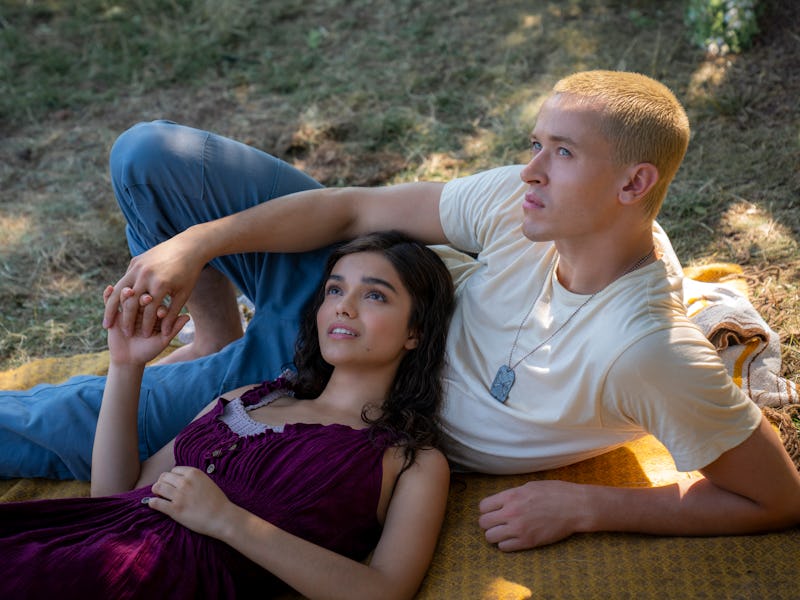The Ballad of Songbirds & Snakes Makes a Rare Book-to-Movie Mistake
Can a film be too faithful to its source material?

Eight years after its fourth installment hit theaters, the Hunger Games franchise has returned. Rather than continuing the story of Katniss Everdeen, though, the series’ latest installment, The Hunger Games: The Ballad of Songbirds & Snakes, is a prequel set 60 years before the events of its first four films. It’s based on author Suzanne Collins’ 2020 novel of the same name, and both the new film and its source material attempt to offer a closer look at the threat of authoritarianism than even the original Hunger Games movies and books.
It does so by telling the quasi-origin story of the series’ primary villain, Coriolanus Snow, who isn’t a ruthless dictator when The Ballad of Songbirds & Snakes begins, but an ambitious 18-year-old boy desperate to prove himself. The film, like the book that came before it, offers a compelling new perspective on many of the Hunger Games franchise’s long-running themes of freedom and oppression.
However, while the movie doesn’t struggle to bring the new-old world of Panem to life again, its unwavering faithfulness toward its source material ultimately prevents it from telling Coriolanus’ story as powerfully onscreen as it could have.
The Hunger Games: The Ballad of Songbirds & Snakes is the rare book adaptation that is *too* faithful to its source material.
The first act of The Ballad of Songbirds & Snakes is surprisingly, refreshingly efficient. The film’s opening scene establishes its protagonist’s traumatic childhood and the scenes that follow not only set up his desire to win a financial prize that can turn his life around, but also what he’ll have to do to get it. For the entirety of its first two-thirds, the prequel mines as much drama and tension out of its story as it can. The film follows Blyth’s Coriolanus as he’s exposed to increasing amounts of institutional evil and simultaneously grows more willing to bend societal rules in his favor.
By the time the film’s central Hunger Games have ended and Coriolanus’ tribute, Lucy Gray Baird (Rachel Zegler), has emerged victorious, The Ballad of Songbirds & Snakes has set itself up for an explosive finale. That’s not what comes, though. Instead, the film spends an additional 45 minutes following Coriolanus as he’s exiled to District 12 and presented with superfluous opportunities to betray both Lucy Gray and his “best friend,” the immensely privileged Sejanus Plinth (Josh Andrés Rivera). The movie’s previously propulsive pace quickly fizzles as viewers are forced to watch Coriolanus inch along a needlessly convoluted path toward a predetermined outcome.
This section of the film is, unsurprisingly, lifted almost directly from Collins’ original novel. Coriolanus’ time spent in District 12 helps bring the book’s story of moral rot to a chillingly quiet conclusion, but the section only truly works because of the insight readers gain by having literal access to Coriolanus’ thoughts as he decides to turn Sejanus in for treason and tries to dispatch with Lucy Gray. Moviegoers are rarely afforded the same kind of luxury, and the District 12 detour that The Ballad of Songbirds & Snakes takes is one of increasingly diminishing returns.
That’s partly because of the limited interiority that the film is allowed to offer. It’s also partly because Coriolanus’ onscreen relationships with both Lucy Gray and Sejanus never come across as fully convincing. Blyth’s performance is one of cold, rakish charm that doesn’t allow for the kind of romantic tension or warmth that Coriolanus’ storylines with Lucy Gray and Sejanus, as they’re written in Michael Lesslie and Michael Arndt’s screenplay, require. His eventual betrayals seem obvious, and they lack the nail-biting tension of the choices that Coriolanus is forced to make on a moment-to-moment basis throughout The Ballad of Songbirds & Snakes’ first half.
By sticking so closely to the events of its source material, The Ballad of Songbirds & Snakes robs itself of the opportunity to tell a truly cinematic version of Coriolanus Snow’s rise to power.
There’s a preciousness that The Ballad of Songbirds & Snakes has toward its source material that is admirable and, at times, suffocating. Nowhere are the limitations of its faithfulness to the novel that inspired it clearer, however, than in its final third, which forces the film to sacrifice the momentum of its second act for a series of drawn-out, dramatically unsatisfying choices. Had the movie’s creative team been a bit more willing to diverge from its source material, it might have been able to streamline its narrative a bit more and lose some of the last-minute detours from Collins’ novel, most of which work far better on the page than they do on the screen.
Instead, The Ballad of Songbirds & Snakes remains steadfastly committed to its original book’s excessively elaborate plotting and, as a result, falls frustratingly short of greatness.
The Hunger Games: The Ballad of Songbirds & Snakes is now playing in theaters.
This article was originally published on